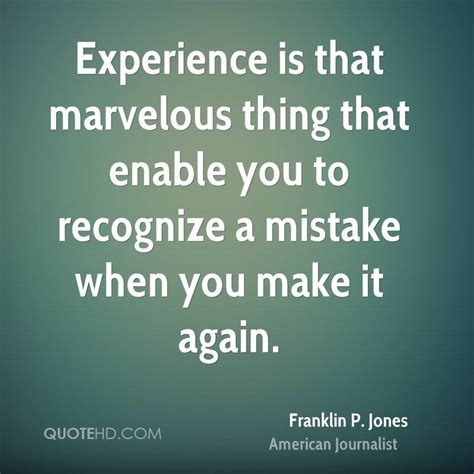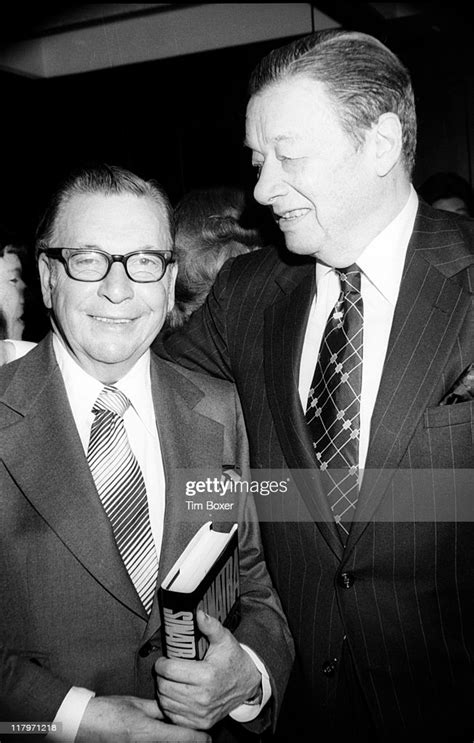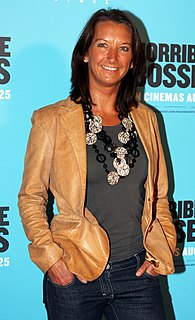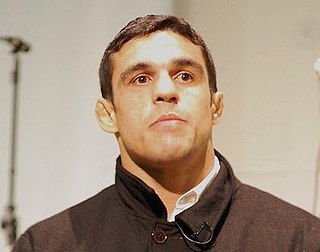A Quote by Franklin P. Jones
Experience is that marvelous thing that enables you to recognize a mistake when you make it again.
Related Quotes
But what if I make a mistake?' Will asked. Gilan threw back his head and laughed. 'A mistake? One mistake? You should be so lucky. You'll make dozens! I made four or five on my first day alone! Of course you'll make mistakes. Just don't make any of them twice. If you do mess things up, don't try to hide it. Don't try to rationalize it. Recognize it and admit it and learn from it. We never stop learning, none of us.
One of the greatest handicaps is to fear a mistake. You have stopped yourself. You have to move freely into the arena, not just to wait for the perfect situation, the perfect moment... If you have to make a mistake, it's better to make a mistake of action than one of inaction. If I had the opportunity again, I would take chances.
... I don't think anybody should avoid mistakes. If it is within their nature to make certain mistakes, I think they should make them, make the mistakes and find out what the cost of the mistake is, rather than to constantly keep avoiding it, and never really knowing exactly what the experience of it is, what the cost of it is, you know, and all the other facets of the mistake. I don't think that mistakes are that bad. I think that they should try and not do destructive things, but I don't think that a mistake is that serious a thing that one should be told what to do to avoid it.
We can roam the bloated stacks of the Library of Alexandria, where all imagination and knowledge are assembled; we can recognize in its destruction the warning that all we gather will be lost, but also that much of it can be collected again; we can learn from its splendid ambition that what was one man's experience can become, through the alchemy of words, the experience of all, and how that experience, distilled once again into words, can serve each singular reader for some secret, singular purpose.
I think the first thing is to recognize a mistake that Obama made. And others have made in thinking that you can revolutionize a system that's unbelievably complex and interlinked, one-sixth of the economy. That was a mistake because whenever you change one thing, it changes 80 other things, and now if you're changing everything at once, you have no idea what the outcome is going to be and you get all of these unintended side effects.
That is a horrible thing in a way, but it is the one thing poets can bring back to experience, this intense focus on language, which activates words as a portal back into experience. It's a mysterious process that's very hard to articulate, because it's focused entirely on the material of language in a way, but in the interests not just of language itself whatever that would mean - that's the mistake, by the way, that so many so-called "experimental" poets make - but in service to human experience.
































